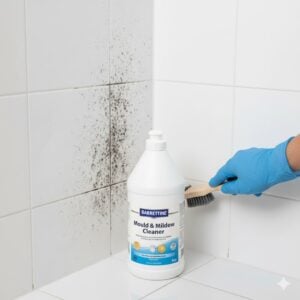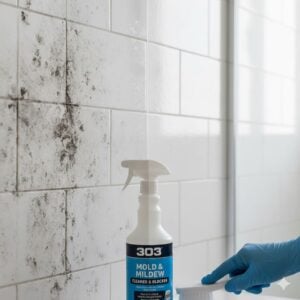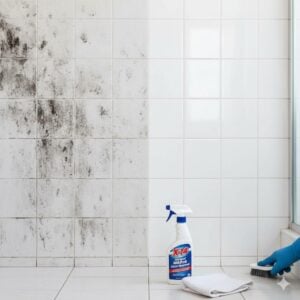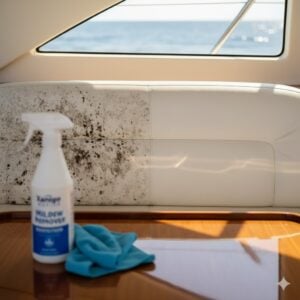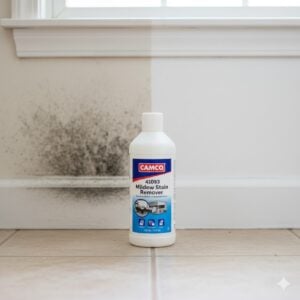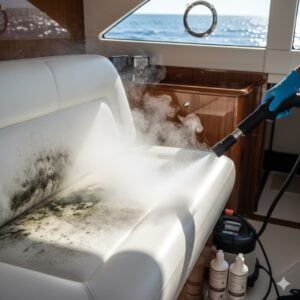Have you ever noticed a strange, musty odor coming from your hair even after showering? That smell — often described as “mildew hair smell” — can be unsettling and embarrassing. It’s not just a hygiene issue; it’s a signal that something is wrong with your environment or washing routine. The odor usually originates from mold spores, damp bathrooms, contaminated water, or bacterial buildup on your scalp. Understanding where it comes from and how to eliminate it can save you from recurring frustration and potential health issues.
Table of Contents
ToggleWhere Mildew Hair Smell Comes From
The unpleasant odor in hair doesn’t come from the hair itself but from what’s around it — water, air, and the surfaces where you wash. Mold spores and bacteria thrive in humid spaces, especially bathrooms with poor ventilation. When you shower in a damp environment, tiny airborne spores can settle on your scalp or in your towel, producing that unmistakable musty scent after drying.
1. Bathroom Humidity and Mold Growth
Bathrooms are one of the most common sources of mildew hair smell. Constant moisture from showers creates a breeding ground for mold behind tiles, inside drains, and on walls. Even if you can’t see it, invisible spores circulate in the air. When you wash your hair in this environment, the steam helps those spores attach to damp strands, especially if the bathroom isn’t properly ventilated.
2. Contaminated Water Sources
In some homes, especially in older buildings or apartments, plumbing systems accumulate bacteria or biofilm inside pipes. This contamination can cause your tap water to carry a faint moldy or metallic odor. Washing your hair with such water transfers the smell directly to your scalp and hair shaft. Over time, it becomes more noticeable — especially if the hair isn’t fully dried.
3. Mold Spores Falling from Ceilings or AC Vents
Air conditioning ducts, bathroom exhaust fans, and ceiling corners often collect dust and mold. When the system is turned on, spores can fall directly onto you or your wet hair. This often goes unnoticed until the odor persists even after shampooing. Regular cleaning of vents and ceilings can dramatically reduce this issue.
How Mildew Smell Forms on Hair
Mildew smell appears when organic residue on your scalp — oils, sweat, or dead skin — reacts with moisture and airborne microbes. These microorganisms release compounds known as microbial volatile organic compounds (MVOCs), which smell earthy or musty, like damp fabric. Once these compounds cling to your hair, they are difficult to remove with basic shampoo alone.
Risks of Ignoring Mildew Hair Smell
It’s easy to dismiss this as a minor inconvenience, but ignoring it can have unpleasant and even harmful effects:
- Scalp irritation: Prolonged exposure to mold spores can cause redness, flaking, or itching.
- Fungal infections: Excess moisture and bacteria promote scalp fungus, leading to dandruff or seborrheic dermatitis.
- Weakened hair roots: Bacterial buildup affects follicle strength, causing hair breakage or excessive shedding.
- Persistent odor in fabrics: Towels and pillowcases can absorb and re-transfer the smell, making it hard to eliminate.
- Respiratory discomfort: Mold exposure can trigger allergies, especially for sensitive individuals.
How to Get Rid of Mildew Hair Smell
Fortunately, removing mildew odor from your hair involves addressing both your hygiene routine and your environment. Here’s a complete guide to eliminating it effectively:
1. Wash Hair with Anti-Fungal or Clarifying Shampoo
Use a clarifying shampoo once a week to remove product buildup and excess oil. For severe cases, anti-fungal shampoos containing ketoconazole, zinc pyrithione, or tea tree oil can kill bacteria and fungus on the scalp. Massage thoroughly into your scalp and let it sit for two minutes before rinsing.
2. Rinse with Vinegar or Lemon Water
Mix one part apple cider vinegar with three parts water and use it as a final rinse. Vinegar neutralizes odors and kills residual mold spores. Lemon water provides a similar effect with a fresh scent but should be used sparingly to avoid dryness.
3. Dry Hair Completely After Washing
Mold thrives in moisture, so leaving your hair damp encourages odor to return. Blow-dry on a cool setting or towel-dry using a clean microfiber towel. Never wrap wet hair in a towel for long periods.
4. Replace Old Towels and Pillowcases
Fabrics absorb mildew easily and reintroduce the smell even after washing your hair. Wash towels in hot water weekly and replace them if they still carry a musty scent. Use pillowcases made from breathable cotton or bamboo that dry faster and resist mold.
5. Disinfect Your Bathroom Regularly
Clean tiles, drains, and walls using an anti-mold cleaner or a mixture of baking soda and white vinegar. Pay attention to hidden spots like corners, behind the toilet, or under the sink. Keeping your bathroom dry and ventilated is key to stopping mold spores from spreading.
6. Clean Showerheads and Faucets
Mineral buildup and bacteria accumulate in showerheads. Soak them monthly in a vinegar solution for 30 minutes, then rinse thoroughly. This prevents microbial growth inside the nozzle that might otherwise transfer to your hair.
7. Check Your Water Source
If your tap water has a musty odor, have it tested for bacterial contamination. In some cases, water filters or softeners may solve the problem. If mold is found in pipes or tanks, contact professionals to disinfect and sanitize your plumbing system.
8. Inspect AC and Ventilation Systems
Regularly clean your air conditioner’s filters and ducts, especially in bathrooms and bedrooms. Mold spores can circulate throughout your home if left untreated. Professional HVAC cleaning may be necessary if odor persists even after surface cleaning.
When to Seek Professional Help
If the mildew smell remains even after cleaning your environment and changing your hair care routine, the issue may be deeper — involving indoor air quality or hidden water leaks. In such cases, it’s time to consult experts like Bio-On UAE.
Bio-On UAE specializes in mold remediation, odor removal, and environmental sanitization. We handle complex sources of contamination such as air vents, water tanks, and hidden wall moisture. Our professional cleaning ensures the problem is resolved at its root, not just masked by fragrances or surface cleaning.
How Bio-On UAE Can Help
Our technicians conduct a detailed inspection to identify mold or moisture sources contributing to mildew hair smell. Using advanced technology such as thermal imaging and humidity measurement, we locate hidden dampness behind tiles or inside ceilings. Then, we apply anti-fungal treatments and ozone or ULV fogging to neutralize airborne spores and odors.
By sanitizing the bathroom, ventilation ducts, and water sources, Bio-On eliminates the cause of mildew at its origin. This not only restores fresh air but also prevents recurrence — ensuring your bathroom and home remain safe and odor-free.
Estimated Cost of Professional Mold and Odor Treatment in UAE
For mildew-related odor remediation, Bio-On UAE offers transparent pricing:
- Inspection and mold identification: Free for large areas (10+ sq.m)
- Odor neutralization (ozone or fog treatment): From AED 25 per sq.m
- Surface mold removal and disinfection: From AED 35 per sq.m
- Air duct cleaning or sanitization: From AED 1000
Disclaimer: Prices depend on contamination severity and area size. Bio-On always provides inspection and quotation before starting work.
Prevention Tips to Keep Hair and Bathroom Fresh
- Open windows or use an exhaust fan after every shower.
- Keep towels, rugs, and clothing dry — avoid leaving them damp inside the bathroom.
- Clean drains weekly with baking soda and vinegar to prevent buildup.
- Run your AC and ventilation system regularly to avoid moisture stagnation.
- Schedule deep cleaning with Bio-On UAE every six months for mold prevention.
Conclusion
The mildew hair smell you notice isn’t just about personal hygiene — it’s a warning sign of environmental mold or bacterial contamination. Whether the source is your bathroom walls, plumbing, or air ducts, the odor will keep returning until the root cause is removed. While quick fixes like vinegar rinses help temporarily, true odor removal requires identifying and eliminating the moisture or mold problem behind it. Bio-On UAE offers expert cleaning and remediation solutions that protect both your home and your health. If you’re tired of dealing with stubborn musty smells, contact Bio-On UAE via WhatsApp, call, or by filling out the form on this page. We’ll restore your indoor freshness — and make sure your hair smells clean again, every day.








